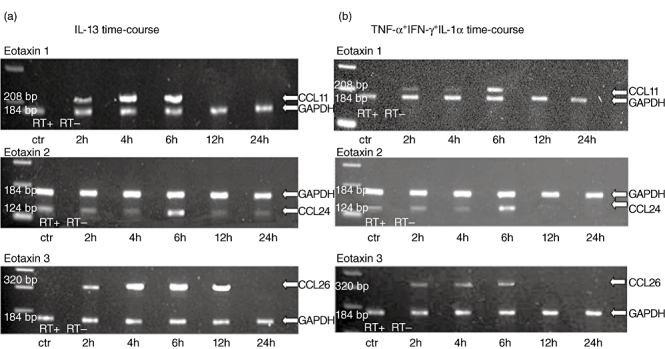Fig. 5.

Both T helper type 1 (Th1) and Th2 cytokines are able to induce mRNA expression of CCR3 ligands by colonic epithelial cells. Total RNA was extracted from cultured HT-29 cells incubated for 2–24 h with media or Th1 and Th2 cytokines. Multiplex reverse transcription–polymerase chain reaction (RT–PCR) for CCL11/eotaxin-1 (upper panel), CCL24/eotaxin-2 (middle panel), CCL26/eotaxin-3 (lower panel) and glyceraldehyde-3-phosphate-dehydrogenase (GAPDH) was performed. (a) CCR3 ligand mRNA expression induced by interleukin (IL)-13 (10 ng/ml). (b) CCR3 ligand mRNA expression induced by interferon (IFN)-γ, tumour necrosis factor (TNF)-α and IL-1α. In order to control for genomic contamination each sample has a reverse transcriptase negative control (RT–). The gel shows fluorescence of ethidium bromide-stained PCR products resolved by electrophoresis.
